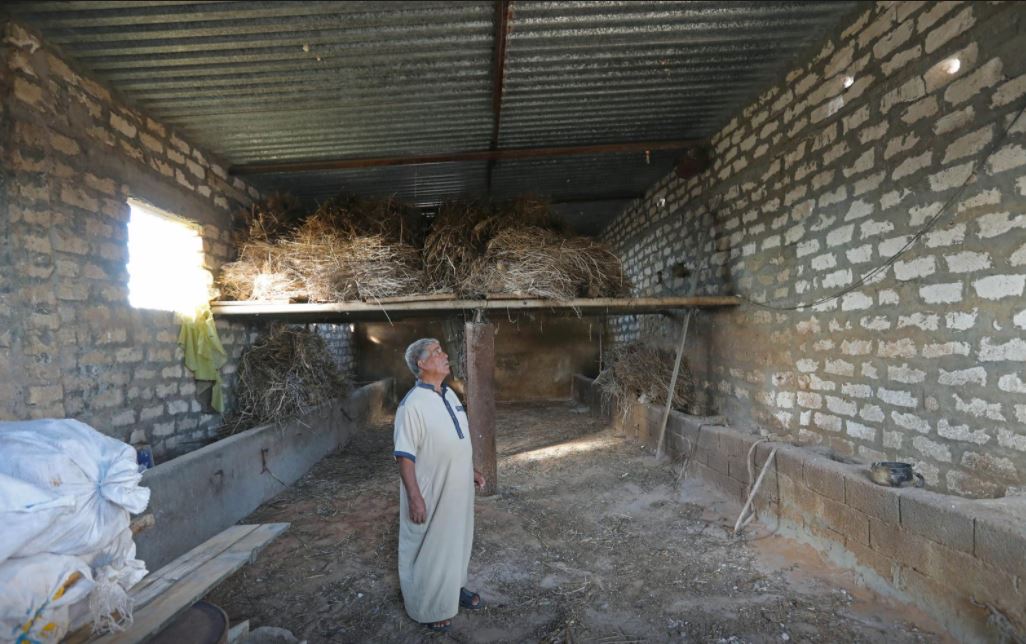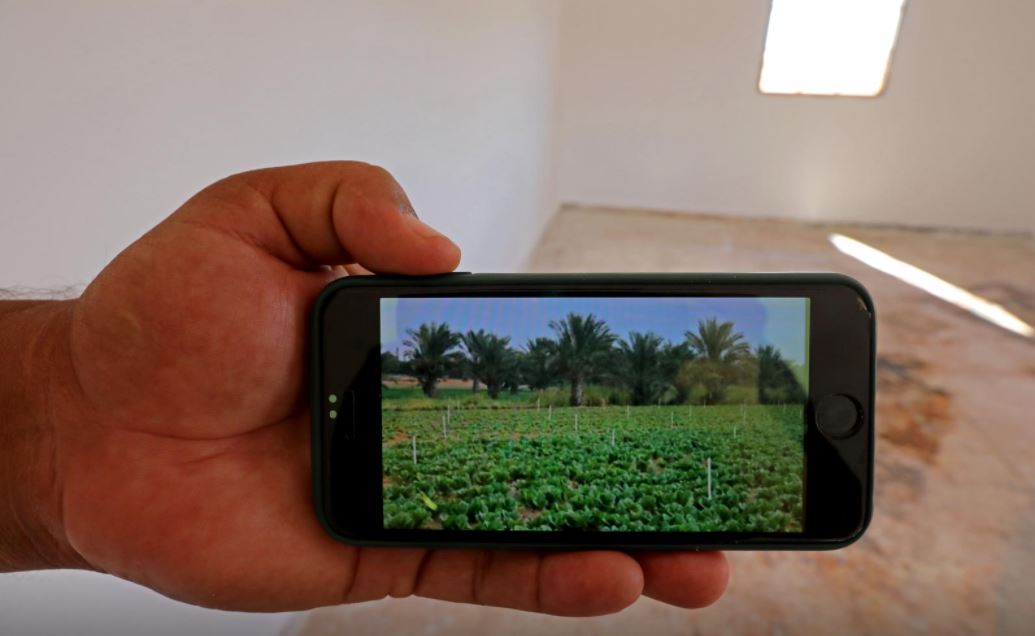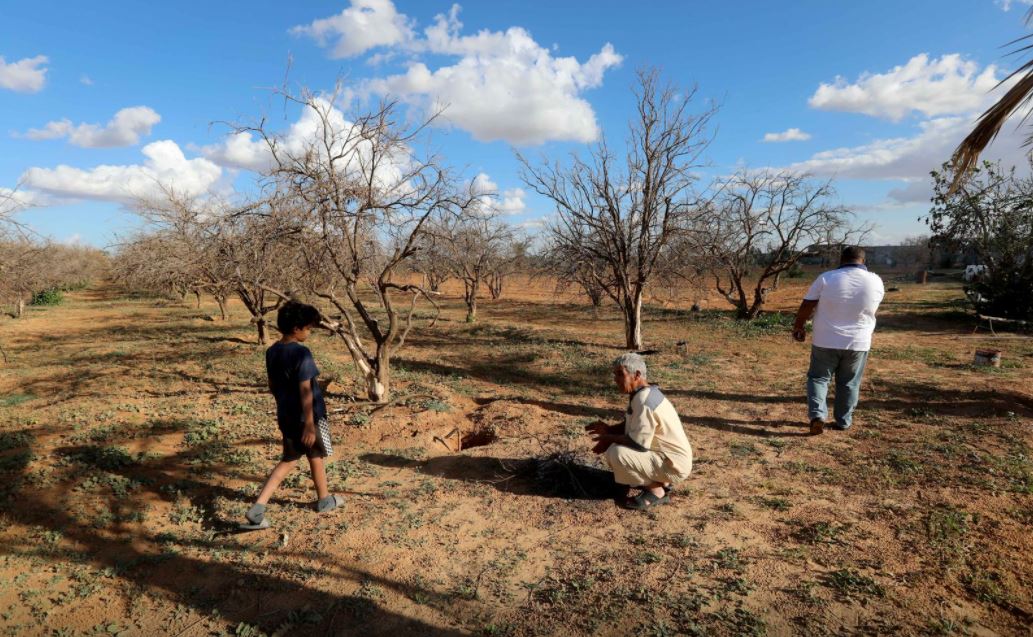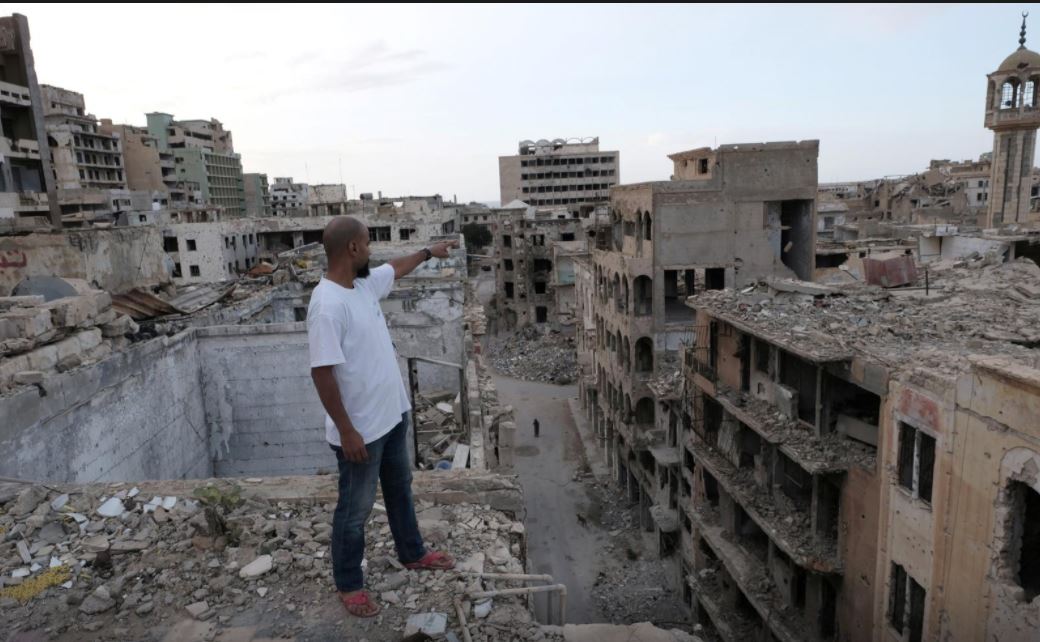Scarred by war but home at last, two Libyan families pray for peace
BENGHAZI/ TRIPOLI, LIBYA:
Libya’s warring armies have agreed a ceasefire and, years after being forced to flee for their lives, the Bouzids and the Alis are finally back at home.
Like many on opposite sides of the front lines, the two families have lost loved ones and seen their livelihoods and dreams destroyed by nearly a decade of conflict.
But while daunting obstacles still stand in the way of a lasting political settlement, the Bouzids are slowly repairing their own small corner of the country, the ransacked south Tripoli farm they returned to after fighting in the area ended in June.
“Dad, Mum and I would sit in the middle of the day and drink tea and enjoy the view of our crops. But then the war came and we fled,” said Mohammed Bouzid, 45. “After we returned, there was nothing left.”
To the east in Benghazi, the Alis had to leave their Misrata Street neighbourhood when fighting engulfed Libya’s second biggest city in 2014.

They returned in 2018, so desperate to get home that they ignored official warnings about landmines and unexploded bombs.
“I personally saw four mines exploding,” said Nasira Abdullah Ali, who now lives with her mother and five brothers in an apartment surrounded by ruins.
Most of the recent warfare was in the west as Khalifa Haftar’s eastern-based Libyan National Army (LNA) waged a 14-month campaign to seize Tripoli, seat of the internationally recognised Government of National Accord (GNA).
Earlier battles during the chaotic years since the 2011 NATO-backed uprising that ousted long-time national leader Muammar Gaddafi had ruined large parts of Benghazi and other cities.
Last week the two sides agreed a ceasefire and next month the United Nations will host a meeting to seek a lasting political settlement and set a date for elections.
Libyans have been through broken ceasefires and peace talks before. Many are sceptical that it will be different this time.
Reviving A Barren Farm
As they work their farm, pulling enough spent ammunition from the fields to fill 10 sacks, Mohammed Bouzid and his 70-year-old father Younes rue their burnt fruit trees and their lost cattle and sheep.
“It was all green. I had watered these orange trees since I was seven years old. When we came back we found it was all dry,” said Mohammed.

They left the farm in the Ain Zara district when Haftar launched his war last year, returning only after his retreat.
Street after street in the neighbourhood shows the scars of fighting, with electricity lines cut, and shops and houses burned out. The destruction reached the Bouzids’ farm a few minutes’ drive away down a rough track.

“All you can see is a result of personal effort and the savings we have left. There is no electricity or water. I have a well and used a generator to run the pump to irrigate the farm,” Younes said.
Now his family, which has friends in eastern Libya, just wants the bloodshed to end, he said.
Back among the ruins
The view from Nasira Abdullah Ali’s apartment is of smashed concrete. Bullet marks and shellholes puncture the walls of nearby buildings.
Together with the rest of her family, the 30-year-old lawyer spent the years away from Misrata Street on a farm and then in a room in a school.
The family business - a small neighbourhood supermarket - was smashed during their absence.

However, for some neighbours, things were worse. Retired soldier Jamal al-Mellah and his wife have to live in the house of a friend after their home was destroyed.
Though partly destroyed, the Alis’ apartment is still serviceable, even if they had to rig up electricity wires themselves and carry their own water, and Nasira’s brothers now have make ends meet doing casual daily work.
“But when we returned we were happy. It was a beautiful, wonderful feeling to be home,” she said.




Comments
Post a Comment